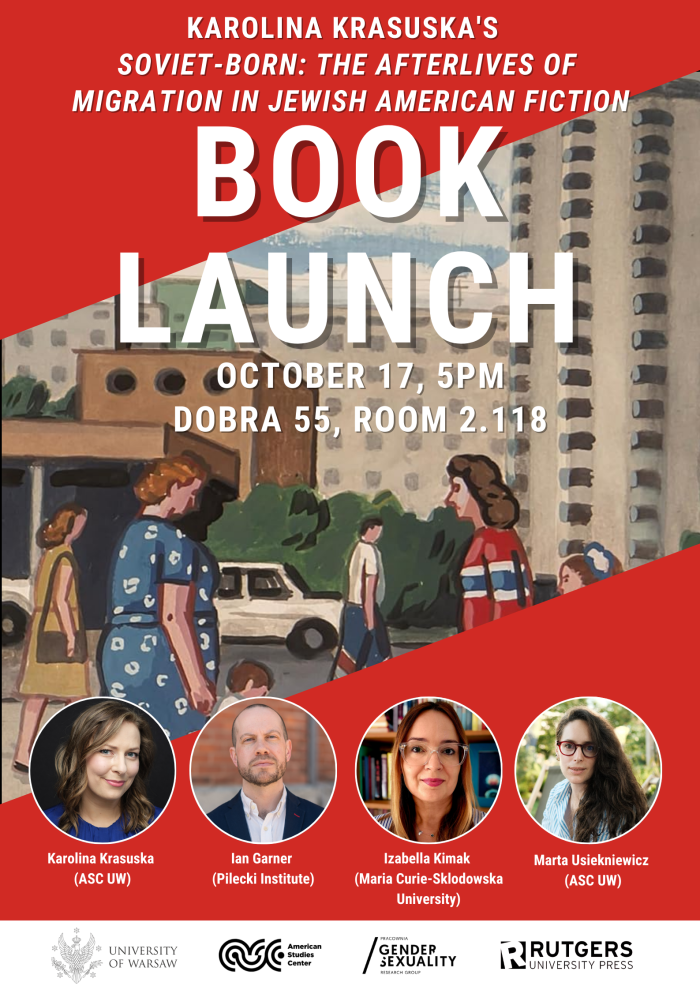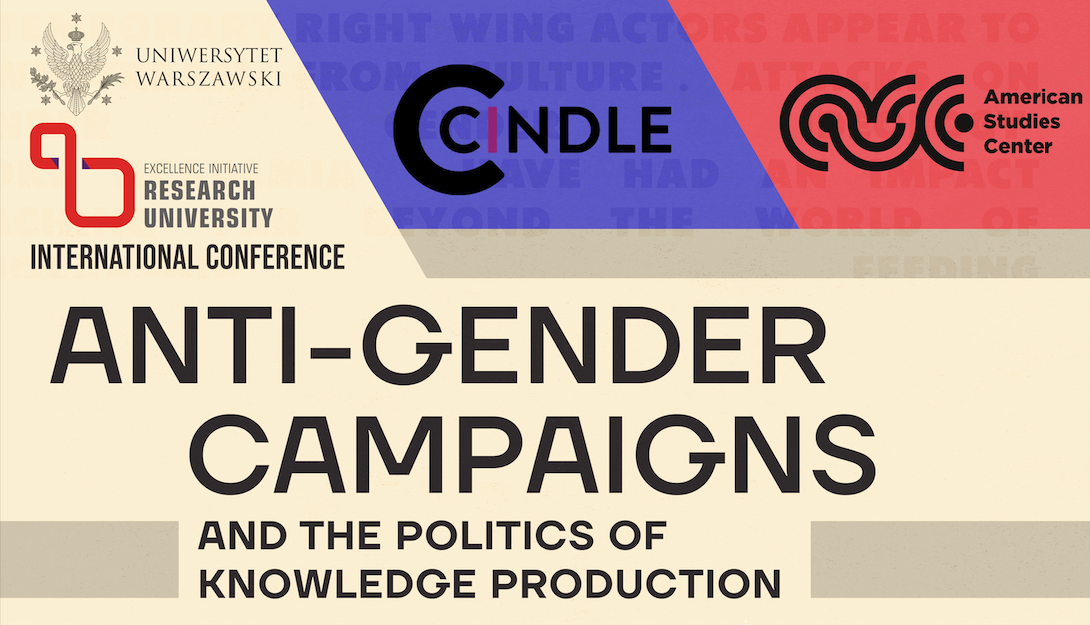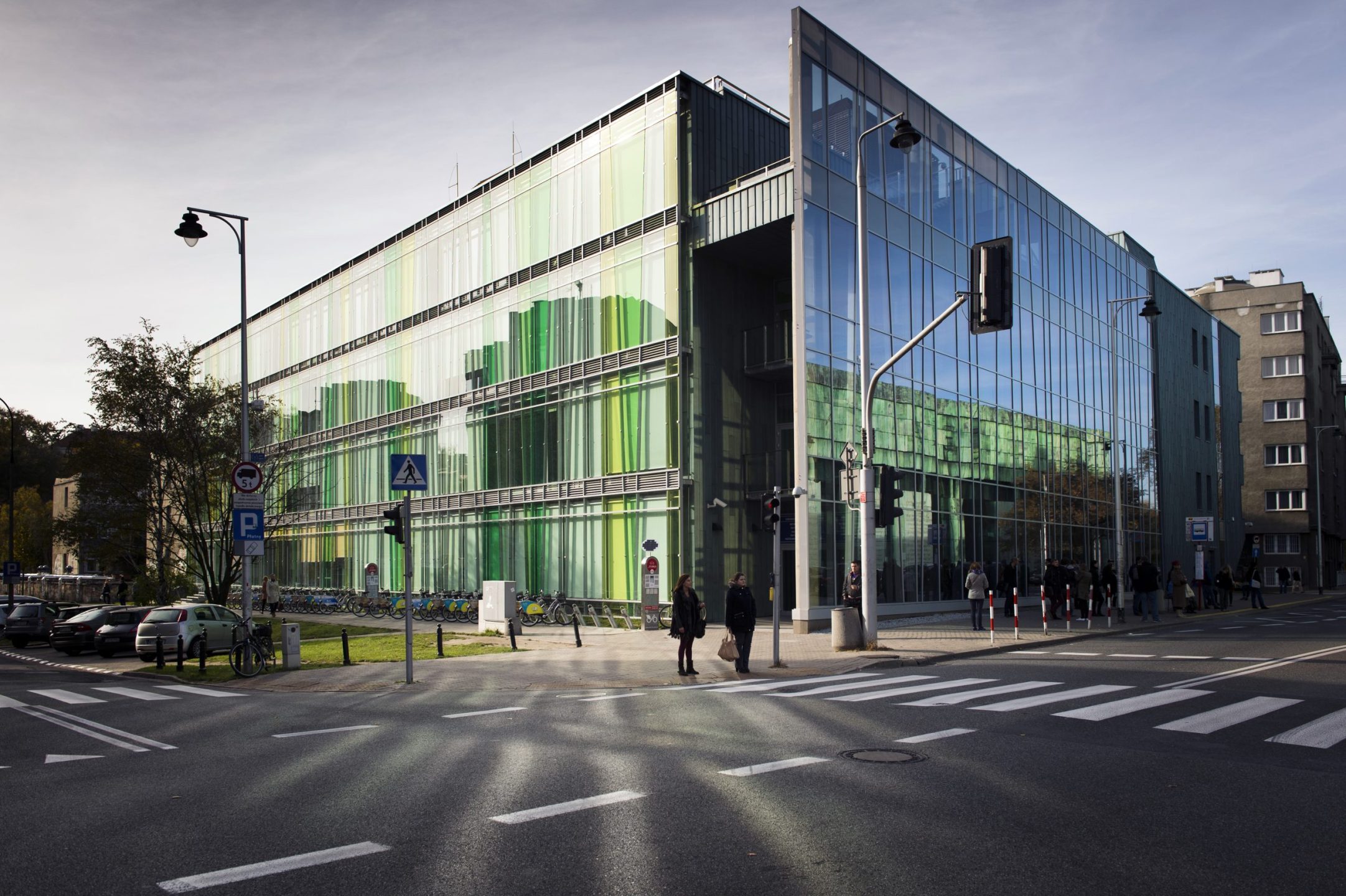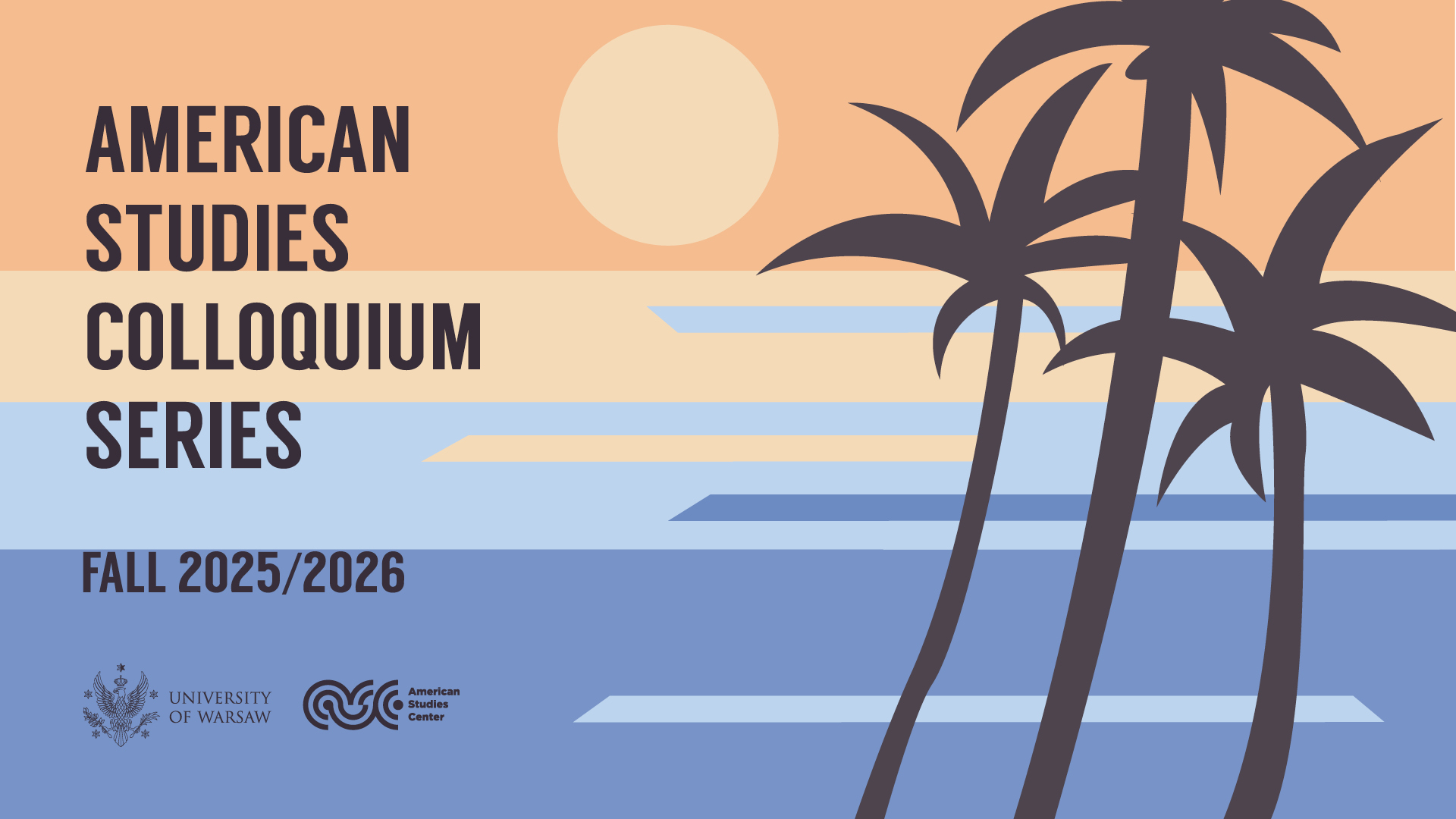We are pleased to invite you to the book launch of Prof. Karolina Krasuska’s book “Soviet-Born: The Afterlives of Migration in Jewish American Fiction“.
Thursday, October 17, 2024
5 PM
Discussion will be followed by wine & snacks!
You can get 3 OZN points for participating in this event.

Where?
Dobra 55, room: 2.118
(the building features some mobility accommodations: ramp and lift)
What?
In 2010, when The New Yorker published a list of twenty writers under the age of forty who were “key to their generation,” it included five Jewish-identified writers, two of whom—American Gary Shteyngart and Canadian David Bezmozgis—were Soviet-born. This publicity came after nearly a decade of English-language literary output by Soviet-born writers of all genders in North America. Soviet-Born: The Afterlives of Migration in Jewish American Fiction traces the impact of these now numerous authors—among others, David Bezmozgis, Boris Fishman, Keith Gessen, Sana Krasikov, Ellen Litman, Gary Shteyngart, Anya Ulinich, and Lara Vapnyar—on major coordinates of the Jewish American imaginary.
Entering an immigrant, Soviet-born standpoint creates an alternative and sometimes complementary pattern of how the Eastern and Central European past and present resonate with American Jewishness. The novels, short stories, and graphic novels considered here often stage strikingly fresh variations on key older themes, including cultural geography, the memory of World War II and the Holocaust, communism, gender and sexuality, genealogy, and finally, migration. Soviet-Born demonstrates how these diasporic writers, with their critical stance toward identity categories, open up the field of what is canonically Jewish American to broader contemporary debates.
Who?
Educated in Poland, Germany, and the United States, Karolina Krasuska is Associate Professor and the founder of the Gender/Sexuality Research Group. Her research and teaching areas include: cultural theory, memory studies, gender studies, and twenty- and twenty-first century literature, including Jewish American literature. Dynamic, student-centered and socially engaged teaching constitutes the core of her pedagogy: she was awarded the University of Warsaw Teaching Award in humanities (2017). Prof. Krasuska initiated the American Studies Colloquium Series at the ASC (2010) and is the founding director of the Gender/Sexuality Research Group (2016). Her research has been funded by multiple grants and awards and her most recent publication is her third monograph Soviet-Born: The Afterlives of Migration in Jewish American Fiction (2024) from Rutgers University Press.
Ian Garner is Assistant Professor at the Pilecki Institute. He received his PhD from the Slavic Department at the University of Toronto (Canada) in 2017. He is the author of two books on Russian military culture and propaganda, Stalingrad Lives: Stories of Combat & Survival and Z Generation: Into the Heart of Russia’s Fascist Youth. He remains an honorary fellow at the Centre for International & Defence Policy in Kingston, Canada, and regularly comments and writes for major media outlets across the world.
Izabella Kimak is an Assistant Professor at the Department of British and American Studies at Maria Curie-Sklodowska University in Lublin, Poland. Her research interests encompass contemporary American literature, with particular emphasis on race, ethnicity, gender, and sexuality. She is the author of Bicultural Bodies: A Study of South Asian American Women’s Literature (Peter Lang, 2013) and numerous scholarly articles as well as a co-editor of several volumes and special issues on contemporary American literature and culture. She is the Secretary General of the European Association for American Studies as well as elected representative of the Polish Association for American Studies to the EAAS. A Kosciuszko Foundation fellow and a recipient of the Polish National Science Center research grant for the project “Sweet Home Chicago: The Windy City and American Writers of Polish Descent.”
Marta Usiekniewicz is an americanist with a Ph.D. from the University of Warsaw, Assistant Professor at the University of Warsaw’s American Studies Center. Her research interests include gender and sexuality studies, body studies, and popular culture. Her scholarship is intersectional, focusing on gender, class, race, and ability. Recipient of the Fulbright Junior Research Award in 2014, she has published in Fat Studies, InterAlia, Przegląd Kulturoznawczy, and co-edited, a special issue of Studia de Cultura on Polish disability studies. Her new book, Food, Consumption, and Masculinity in American Hardboiled Fiction was published by Palgrave in 2023. She co-chairs the Gender/Sexualities Research Group at ASC. She is the creator and co-host of the podcast Oswoić gender. Outside of the academy, she is a Tarbut Fellow and does international communications at Forum for Dialogue, the largest and oldest Polish non-profit dedicated to improving Polish/Jewish relations.



